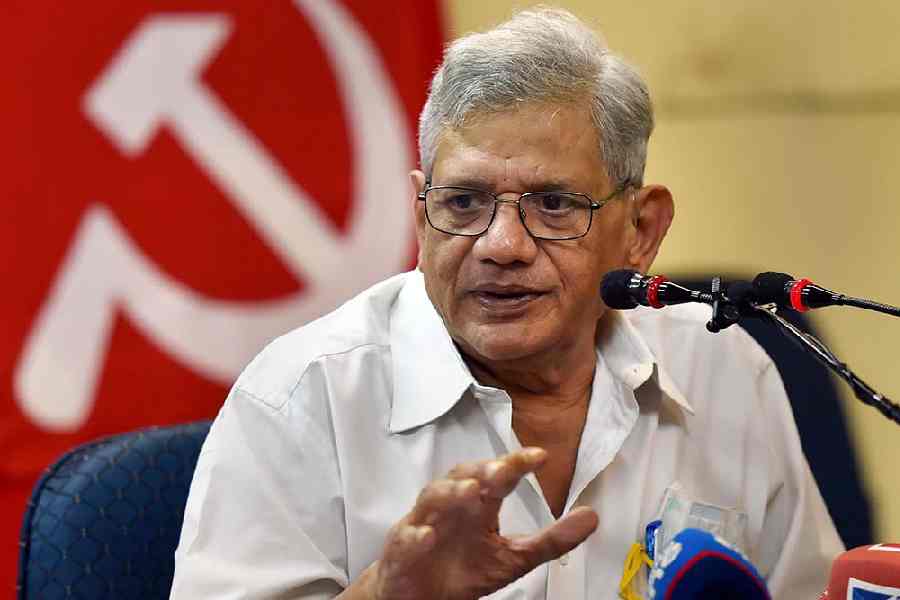CPM general secretary Sitaram Yechury on Tuesday declined the invitation sent to all national parties for the inauguration of the Ram temple in Ayodhya, scheduled for January 22.
In 2020, Prime Minister Narendra Modi laid the foundation for the temple being built by a trust set up by the Centre after the Supreme Court had decided that the land over which the Babri Masjid stood would be used to build a temple. In 1992, the mosque was demolished by Hindu zealots who believed it was the birthplace of Lord Ram.
In a statement on Tuesday, the CPM politburo said: “It believes that religion is a personal choice not to be converted into an instrument for political gain. Therefore, we will not be attending the ceremony.
“It is most unfortunate that the BJP and RSS have converted a religious ceremony into a State-sponsored event directly involving the Prime Minister, the UP Chief Minister and other government functionaries. A fundamental principle of governance in India as reiterated by the Supreme Court is that the State in India, under the constitution should have no religious affiliation. This is being violated by the ruling regime in the organisation of the event.”
Asked about the CPM’s stand, junior Union minister Meenakshi Lekhi told ANI on Tuesday: “I don’t find this surprising because the organisers invited everyone but only those will reach whom Ram has called.”
Last week, Champat Rai, general secretary of the trust building the temple said: “January 22, 2024, is as important as August 15, 1947. It is equally important as getting Kargil back, and as much as the detention of a lakh soldiers was important in 1971.”
The plot has ruins of several earlier structures below it.
In 2017, Prime Minister Modi criticised India's first Prime Minister, Jawaharlal Nehru, for opposing the installation of a Shivlinga for worship at Gujarat's Somnath Temple in 1951 by President Rajendra Prasad. The temple, which had been reconstructed several times over the past millennium, was last destroyed by emperor Aurangzeb in the early 18th century.
The Somnath Trust that was rebuilding the temple was chaired by the Rajpramukh — a former gubernatorial post — of the erstwhile Saurashtra state Sir Digvijaysinhji Ranjitsinhji Jadeja, the titular ruler of the Nawanagar princely state.
Nehru had also opposed the Rajpramukh’s attempt to involve Indian embassies in the inauguration and use funds from the public exchequer for temple festivities. He had written to Prasad in 1951 saying: “In criticism of our policy in regard to it, we are asked how a secular Government such as ours can associate itself with such a ceremony which is, in addition, revivalist in character.”
However, Prasad went ahead with the ceremony. The architect of the temple was Prabhashankarbhai Oghadbhai Sompura. His grandson Chandrakant B. Sompura is the architect of the Ram temple.











